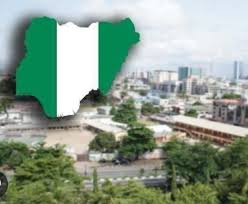Nigeria’s manufacturing sector has been described as a crucial pillar of the economy, with recent data showing that the nation’s packaging market alone is valued at about $2.5 billion. This figure, according to experts, highlights the strength and potential of the sector despite the economic challenges facing the country and the global market.
George Pearson, Regional Director of Montgomery Group, disclosed the figures at the 12th edition of Propak West Africa, which is widely regarded as the premier trade event for packaging, plastics, printing, and processing in the region. He explained that Nigeria’s packaging industry is expected to grow by at least 5 percent year-on-year, driven by rising demand for sustainable solutions and stronger industrial activities.
Pearson said the latest Gross Domestic Product (GDP) data confirms that the packaging industry now contributes about 10 percent to Nigeria’s economy, making it one of the most important drivers of growth in the industrial sector. He stressed that the sector’s performance underscores the importance of manufacturing to Nigeria’s long-term development, especially at a time when the country is seeking ways to diversify revenue and reduce its reliance on crude oil.
Despite global economic headwinds, the manufacturing sector has continued to perform relatively well, contributing 9.6 percent to Nigeria’s GDP. Pearson noted that one of the main factors sustaining this resilience is the increasing focus on local sourcing. According to him, many factories in Nigeria now procure more than half of their raw materials locally. This development, he explained, helps reduce dependence on foreign imports, shortens supply chains, improves product quality, and ensures better compliance with international standards.
In his words: “It is inspiring to see that many factories now procure over 50 percent of their inputs locally. This shortens supply chains, improves control over specifications, and significantly boosts compliance with international standards – a critical step for competing on the global stage. The opportunity is not just to meet standards, but to set them. The opportunity is for West Africa to become a leading supplier of quality, sustainable packaging for the entire region.”
Pearson also stated that this evolution is part of the reason why Propak West Africa exists. He explained that the exhibition serves as a platform to connect people, ideas, and technology, with the mission of supporting Nigeria and West Africa’s industrial growth. According to him, the long-term vision is for the region to set new benchmarks in sustainable packaging and related industries, thereby positioning itself as a major global supplier.
Also speaking at the event, the Assistant Director of Corporate Affairs and Communications at the Manufacturers Association of Nigeria (MAN), Segun Alabi, stressed that manufacturers are committed to ensuring sustainability and innovation in their operations. He explained that MAN has been engaging with its members to prioritize sustainable practices and adopt energy sources that are environmentally friendly.
Alabi emphasized that power supply remains a major challenge for Nigerian manufacturers, but efforts are being made to embrace renewable energy solutions. He said, “Our focus is alternative source of power. And we will ensure that our alternative source of power is something that is very pro-environment, and it has no side effect on the public. We do this by ensuring that most of our members use solar and also get what is needed for them to achieve full capacity and full utilisation of their various factories.”
The manufacturing sector, experts say, will continue to play a critical role in Nigeria’s economic future. By embracing local sourcing, investing in sustainable packaging, and adopting renewable energy, the sector is positioning itself for growth despite global uncertainties. The success of platforms like Propak West Africa highlights how stakeholders are working to build capacity, attract investment, and create new opportunities across industries that are essential to Nigeria’s economic transformation.
